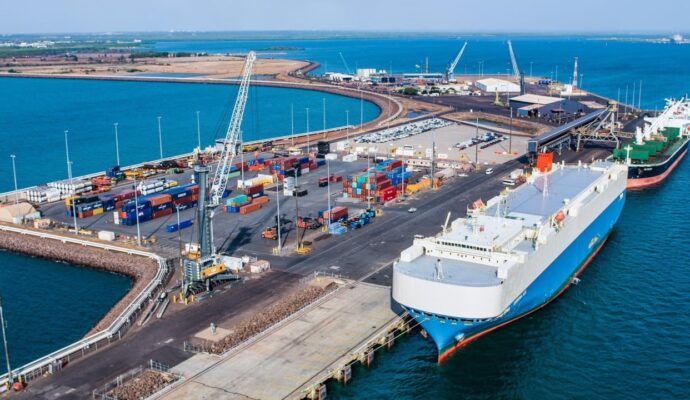
US authorities had raised concerns about the boss of a China-owned chipmaker before it was taken over by the Dutch government this week, according to court papers.
The documents show US officials warned the Netherlands in June that Nexperia may not be able to export to the US if its Chinese chief executive, Zhang Xuezheng, remained in post.
Late on Sunday the Dutch government said it had invoked a cold war-era law to effectively take control of the company, citing “major shortcomings that could jeopardise security of supply” of chips to European factories.
By that point Zhang had been suspended from Nexperia, which is controlled by the Chinese company Wingtech.
It has now emerged that the US had raised concerns about Nexperia’s management as far back as June.
A preliminary court ruling released on Tuesday included minutes of a meeting from 12 June in which the US Bureau of International Security and Nonproliferation told the Dutch foreign ministry: “The fact that the company’s CEO is still the same Chinese owner is problematic … It is almost certain that the CEO will have to be replaced.”
Washington put Wingtech on its “entity list” of companies seen as a threat to national security last year, for its alleged role in “aiding China’s government’s efforts to acquire entities with sensitive semiconductor manufacturing capacity”.
Wingtech, which is 30% owned by Chinese national and regional governments and affiliated investment funds, bought the Dutch chipmaker in 2018 from the Dutch consumer electronics company Philips.
On 30 September, that entity list was expanded to include company subsidiaries, which meant Nexperia would be hit by its restrictions by the end of November.
In an extraordinary move, the Dutch government revealed on Sunday that it had taken control of the Nijmegen-headquartered chipmaker, citing worries about the possible transfer of technology to Wingtech.
That has heightened tensions with Beijing, with Nexperia saying it is now in negotiations with the US to remove barriers to exports.
On Tuesday, China also prohibited Nexperia and its subcontractors from exporting components assembled in China as tensions with the US escalated.
The People’s Daily, the official newspaper of the central committee of the Chinese Communist party, described the takeover as “robbery in legal disguise”, warning that the west was using “national security” as an excuse for its failures to keep up with the Chinese.
“China’s scientific and technological progress has profoundly shaken the nerves of western hegemony,” it said.
The Dutch intervention comes 18 months after the UK government ordered Wingtech to sell its 86% stake in a silicon chip plant in Newport in Wales, the largest chip plant in the country, amid security concerns.
Wingtech called the Dutch government’s intervention in Nexperia “excessive interference driven by geopolitical bias”.
after newsletter promotion
Wingtech also alleged that non-Chinese Nexperia executives had tried to forcibly alter the company’s equity structure through legal proceedings in a “cloaked power grab” on the company.
The Dutch economy minister Vincent Karremans told the Dutch broadcaster NOS: “I recently received serious and urgent signals that the company has major shortcomings that could jeopardise security of supply.
“This would have major consequences for the European and Dutch economies.”
The Dutch invoked never-before-used powers under a Dutch law known as the “Availability of Goods Act”, which does not give it ownership but gives it the power to reverse or block management decisions it considers harmful.
It also points out that it has several subsidiaries in Europe, including wafer production facilities in Manchester and Hamburg.
The Amsterdam commercial court ruling in a “preliminary opinion” that there were “well-founded reasons to doubt the correct policy and correct conduct of affairs” were being pursued by the company.
It appointed the Dutch businessman Guido Dierick to take Zhang’s position with a “deciding vote”, and transferred control of almost all of Nexperia’s shares to a Dutch lawyer for management. The Dutch state and the company’s labour council had supported the moves, the document showed.

